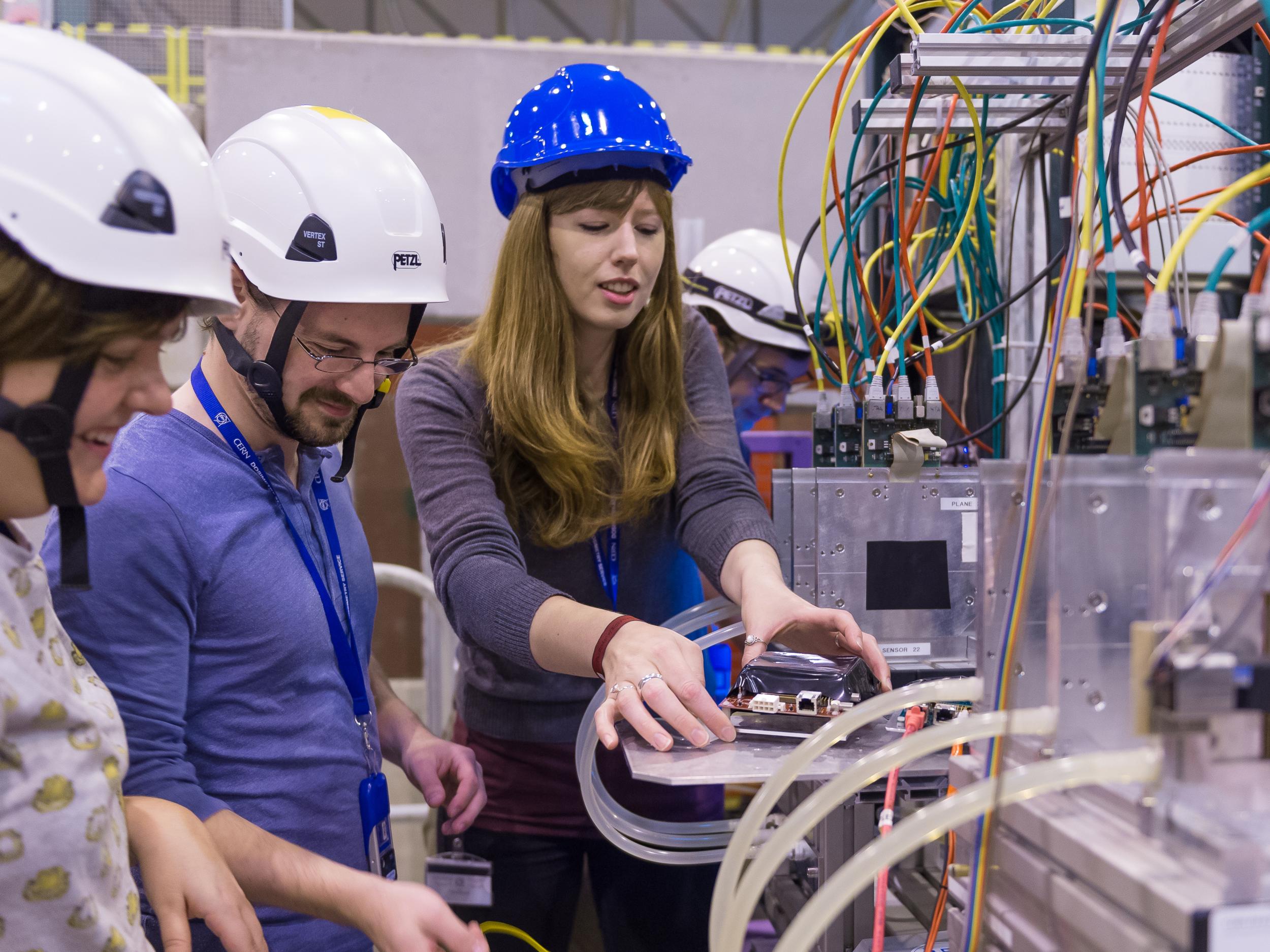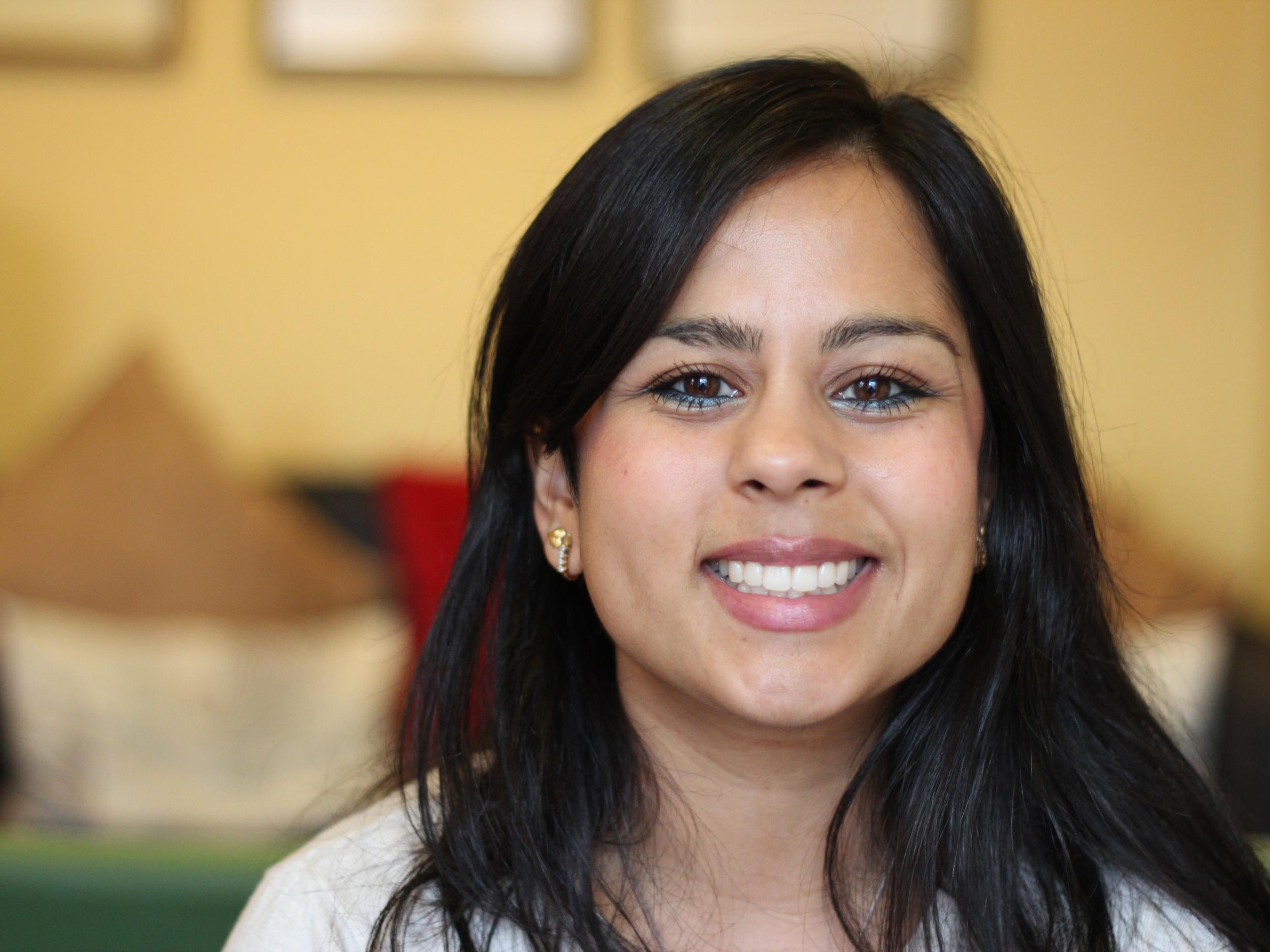No, men are not the real victims of discrimination in physics – here are the women fighting sexism in their field
As a science comedian, I've seen my fair share of gender-based discrimination – but I've also met some really exciting women working to make things more inclusive

You may have heard about the scientist giving a talk in Geneva presenting male physicists as the “real” victims of gender discrimination.
Professor Alessandro Strumia of Pisa University said “physics was invented and built by men” alongside a number of other claims during his presentation at the otherwise positive and fascinating High Energy Theory and Gender event. The conference was meant to share recent developments in theoretical physics and cosmology alongside talks on gender and equal opportunities.
But this professor’s talk seemed instead to be deliberately provocative, dubiously backed up by slides and doublespeak, with him reinterpreting everything from unequal pay and hiring as hurting men more than women, to women receiving fewer citations than men (I guess he hasn’t read this study on how men cite themselves an awful lot) so that everything pointed to men being the “real” victims of sexism in physics.

Unfortunately, he’s not alone in his views; according to the Institute of Physics Closing Doors and Opening doors reports on gender equality in science.
But since the event aimed to support women and other underrepresented groups, specifically inviting all genders at all levels to attend the sessions, Strumia’s comments didn’t go over too well. The response was swift and damning, which has been a really refreshing change for those following the Brett Kavanaugh hearing this week.
Researchers in attendance and their supporters took to Twitter to condemn the talk, Cern supported their response and released a statement, and today updated the statement to say that Strumia has been suspended.
In my experience, as someone who does a lot of science comedy and has previously hosted a show at a Cern event, I know the organisation works incredibly hard to support a huge community of scientists from all over the world. They collaborate in person and online on the latest research in particle physics, making huge advances – like the observation of the elusive Higgs boson particle in 2012. Their outreach events are normally fun and interesting.
So in the interest of highlighting the good stuff that came out of the event, and to put some positivity out there like the researchers and attendees intended, and because we could do with some good news and some representation right now, here are some women in physics you should pay attention to right now.

Clara Nellist is a post-doctoral research associate at the University of Gottingen. She’s an experimental particle physicist working on the Atlas experiment at Cern. Her work focuses on understanding the properties of the top quark, the heaviest known fundamental particle, and understanding how it interacts with the Higgs boson.
What’s coming up for her? She’s anticipating the Large Hadron Collider – that’s the particle accelerator smashing atoms and capturing data so we can find out what the universe is made of and other cool stuff – shutting down for maintenance work on the accelerator and the detectors. “This is an exciting opportunity to install upgrades that have been worked on for the last few years. We also have a huge amount of data that we are still analysing to test the robustness of the theory known as the Standard Model, and search for particles that could explain what dark matter is.” The Standard Model is all sub-atomic particles that can't be broken down into smaller parts. The most recent addition was the Higgs boson.
Claire Lee is a research associate for Brookhaven national laboratory, working on measurements of Standard Model processes with the Atlas experiment. She explained a little more about her job: “I help to keep the particle detector functioning optimally during data taking as an on-call expert for one of the calorimeters (a part of the detector that measures the energy of the particles coming out of the proton-proton collisions). I also am part of a committee representing early career scientists on Atlas, as well as being actively involved in public engagement.”
One of the things that the committee does is host induction days where they invite the Cern ombudsperson to “introduce and discuss the Cern code of conduct, which is important for maintaining an inclusive and peaceful working environment.”
Here in the UK, I caught up with fellow science comedian Sheila Kanani, who is the education outreach and diversity officer for the Royal Astronomical Society.
Sheila is a big fan of Saturn and worked on the Cassini International team. “It was amazing and encouraging because a lot of the instrument principle investigators who lead the teams were women, so I always felt encouraged when surrounded by people like Michelle Dougherty from Imperial and Emma Bunce from Leicester.
“At the moment I’m doing a lot of diversity in astronomy and geophysics work, teaching GCSE astronomy and writing children’s space books.” She’s also working on some excellent outreach events coming up this month. “We’ve got diversity in space careers at the Royal Astronomical Society this Thursday, and also the Ada Lovelace Day lecture next week about women in astronomy by Helen Klus.”
One of my absolute favourite physics moments happened at a live broadcast of the Rosetta mission to land a probe on a comet. Monica Mary Grady, professor of planetary and space science at The Open University, had the most delightful and enthusiastic response to the success of the mission, and role-modelled a brilliant woman expressing joy and emotional intelligence in a warm and positive way.
I would encourage anyone to go to physics outreach events, especially young women. Women are making incredibly valuable contributions to science every day, just like the unsung women of science history did. Celebrating – and citing – their work is crucial.
So finally, speaking of celebrating women in physics, a (few weeks belated) very happy birthday to Nasa scientist (of Hidden Figures fame) Katherine Johnson, who’s turned 100.
Chella Quint is a comedian and menstruation education researcher. She comperes the launch night of the Women in Comedy Festival in Manchester later this month.
Join our commenting forum
Join thought-provoking conversations, follow other Independent readers and see their replies
Comments
Bookmark popover
Removed from bookmarks